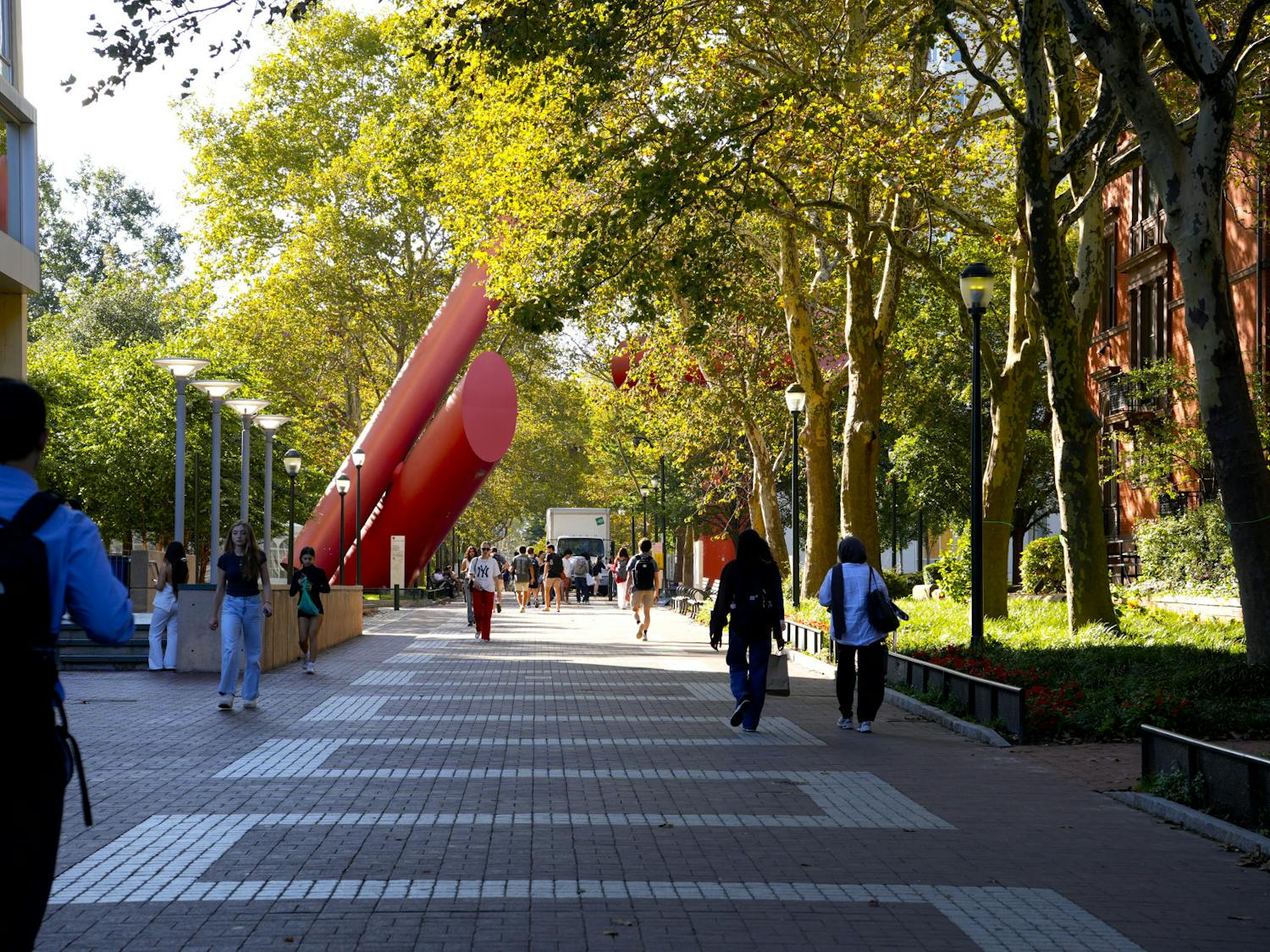Several Philadelphia neighborhoods, including University City, will launch a community court program today in an effort to diminish recurring minor crimes throughout the city.
Penn Police officials hope the program, which will hold defendants immediately accountable for their crimes and will institute rehabilitation rather than fines or prison time for summary offenses, will significantly reduce crimes like disorderly conduct or public drunkenness on and around campus.
"We're looking forward to participating in the program, and we hope to address some of the quality of life issues here in University City," Police Chief Tom Rambo said. "Students see the regular people out there and wonder why we can't get them off the streets. If we can get those people help early, we should be able to minimize that."
The program is modeled after one implemented in midtown Manhattan in 1993.
In its first year of operation, the New York court arraigned 11,959 people, mostly commonplace misdemeanors.
Under the community court system, if a summary citation is given during the daytime hours, 4 a.m. to 3 p.m., the police officer writing the citation can immediately accompany the offender to community court downtown at Broad and Arch streets to have their case tried by Judge Wendy Pew.
If the offense does not occur during daytime hours, the offender is given a subpoena to appear the next day.
Under the old system, a summary offense, which is unindictable, was written for most minor crimes, including aggressive panhandling.
A subpoena would then be given to the offender for a court date 30 days later.
"The likelihood of them showing up for that court date 20 or 30 days down the road is hit or miss," said William Danks, Deputy Chief of Investigations for the Penn Police.
Previously, summary offenders had little incentive to cease their illegal actions, pay their fines or even appear for their court date, as indicated by the 30,000 to 40,000 outstanding bench warrants currently in Philadelphia for such subpoenas.
In the unlikely case that offenders did appear in court 30 days after the incident, the consequences could be fines of up to $300 plus court costs or possible jail time if fines could not be paid.
This will not be the case in community court. One of its goals is to identify the underlying problems leading to the offense.
"This program is going to take it out of the realm of punishment and into the realm of rehabilitation," Danks said.
And the court aims to be entirely self-sufficient.
During the community court hearings, Judge Pew will defer to delegates from housing services, job programs and social services, all with offices in the building, in deciding the best possible options for each offender.
Several areas, including University City, have been denoted community service districts, meaning offenders can be sent by the judge back to the area to perform service for the community, such as cleaning up graffiti or litter, as part of their rehabilitation.
The program seeks to target the chronic summary offender, such as the individual who is arrested several times each week for aggressive panhandling.
"Let's get these guys into a room where we can at least try to make some kind of positive step instead of having to lock them up 10 more times," Danks said.
Panhandling in and of itself is not against the law, but is often cited as obstructing the passageway or disorderly conduct.
Police officials describe the situation as a continuous cycle.
"He gets arrested; he doesn't show up," Danks recounted. "We finally put out a warrant for his arrest, and then he can't pay his fine because he is out on the street panhandling, and it just goes on and on. This way they can get him in immediately and finally do something before it gets to that."
Though community court opens today, University City will begin participating either later this week or next week.








